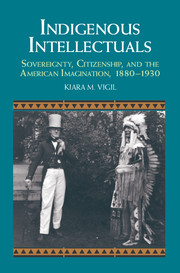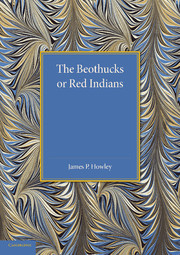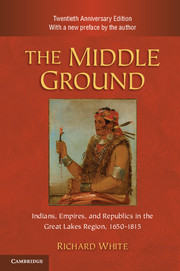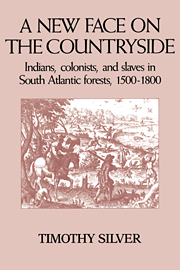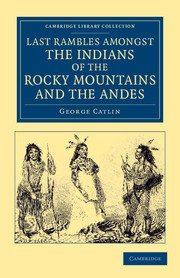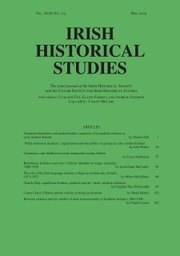Indigenous Intellectuals
In the United States of America today, debates among, between, and within Indian nations continue to focus on how to determine and define the boundaries of Indian ethnic identity and tribal citizenship. From the 1880s and into the 1930s, many Native people participated in similar debates as they confronted white cultural expectations regarding what it meant to be an Indian in modern American society. Using close readings of texts, images, and public performances, this book examines the literary output of four influential American Indian intellectuals who challenged long-held conceptions of Indian identity at the turn of the twentieth century. Kiara M. Vigil traces how the narrative discourses created by these figures spurred wider discussions about citizenship, race, and modernity in the United States and elsewhere. By setting them in dialogue with white American culture, Vigil demonstrates how these figures deployed aspects of Native American cultural practice to authenticate their status both as indigenous peoples and as citizens of the United States.
- Will appeal to scholars in American studies, Native American studies, and those interested in assimilation, citizenship, migration, nationalism, and colonialism
- Also of interest to American literary historians and literary scholars interested in genre definitions, literary markets, and circulation of various types of print culture
- Examines identity as it pertains to the intersection of gender, race, class, and sexuality
Reviews & endorsements
'Kiara Vigil demonstrates that two plus two can equal much more than four, as she deftly builds a collective cultural biography that re-imagines in networked terms the American Indian intellectuals of the early twentieth century. Beautifully written and thoroughly researched, Indigenous Intellectuals places Indian thought, performance, and politics at the heart of American modernity.' Philip J. Deloria, University of Michigan, and author of Indians in Unexpected Places
'Kiara M. Vigil's powerful collective cultural biography of four major Indigenous intellectuals, Dr Charles A. Eastman, Dr Carlos Montezuma, Gertrude Bonnin, and Luther Standing Bear, illuminates the important political and cultural work they did in their writings, public appearances, and performances. She shows how these thinkers engaged with modernity to offer penetrating critiques of American society and in defense of Indigenous political lives around questions about citizenship, assimilation, and modernity. Deeply researched and nuanced, Indigenous Intellectuals contributes richly to our understanding of Indigenous intellectual life during a moment of immense change in Indian country.' Jean O'Brien, University of Minnesota
'An outstanding work of American literary and cultural history, Indigenous Intellectuals draws upon a broad archive to bring new sources and interpretations to light. Kiara Vigil's nuanced readings reveal the complex individual and collective choices and broad intellectual circuits traversed by a generation of Native American writers and performers. A powerful and illuminating contribution to American cultural studies.' Beth H. Piatote, University of California, Berkeley
‘Vigil’s analysis of Indian networks … contributes substantially to our understanding of Native American women authors’ literary and political legacies.’ Penelope M. Kelsey, Legacy: A Journal of American Women Writers
‘… successful in showing how these Native individuals accessed and participated in broader intellectual and activist networks … Indigenous Intellectuals makes a valuable contribution to modern American Indian and United States history.’ Nicolas G. Rosenthal, Reviews in American History
Product details
July 2015Hardback
9781107070813
378 pages
229 × 152 × 22 mm
0.68kg
11 b/w illus.
Available
Table of Contents
- Introduction: a red man's rebuke
- 1. A global mission: the higher education of Charles Eastman
- 2. Tracing Carlos Montezuma's politics: progressive reform and epistolary culture networks
- 3. Red Bird: Gertrude Bonnin's representational politics
- 4. Staging US Indian history with Reel Indians: Luther Standing Bear, performativity, and cultural politics
- Conclusion: the 1930s, Indian reorganization, and beyond
- Afterword.

